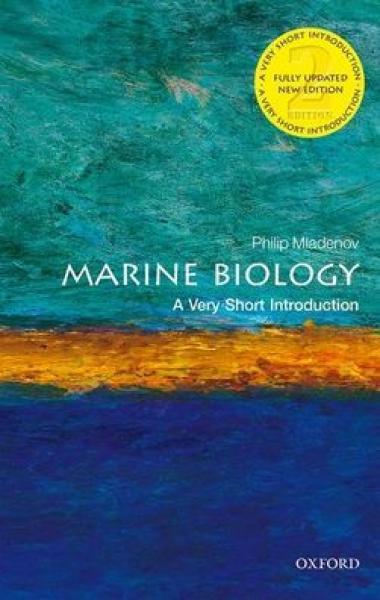Description
Earth's most significant, intriguing, and inaccessible ecosystems. In an era in which humans are significantly altering the global environment, the oceans are undergoing rapid and profound changes. The study of marine biology is thus taking on added importance and urgency as people struggle to
understand and manage these changes to protect our marine ecosystems. Healthy oceans produce half of the oxygen we breathe; stabilize our climate; create ecosystems that protect our coasts from storms; provide us with abundant food; and host diverse organisms that provide us with natural products
for medicine and biotechnology.
In this Very Short Introduction, marine biologist Philip Mladenov provides an accessible and up-to-date overview of marine biology, offering a tour of marine life and marine processes that ranges from the unimaginably abundant microscopic organisms that drive the oceans' food web to the apex
predators that we exploit for food; from polar ocean ecosystems to tropical coral reefs; and from the luxurious kelp beds of the coastal ocean to deep-ocean hydrothermal vents where life exists without the energy of the sun. Throughout the book he considers the human impacts on marine life including
overfishing, plastic and nutrient pollution, the spread of exotic species, and ocean warming and acidification. He discusses the threats these pose to our welfare, and the actions required to put us on a path to a more sustainable relationship with our oceans so that they can be restored and
protected for future generations. Mladenov concludes with a new chapter offering an inspiring vision for the future of our oceans in 2050 that can be realised if we are wise enough to accelerate actions already underway and be bold with implementing new approaches.
The next decade will decide the state of the oceans that we leave behind for future generations.
ABOUT THE SERIES:
The Very Short Introductions series from Oxford University Press contains hundreds of titles in almost every subject area. These pocket-sized books are the perfect way to get ahead in a new subject quickly. Our expert authors combine facts, analysis, perspective, new ideas, and enthusiasm to make
interesting and challenging topics highly readable.
"Authoritative yet tender, this is a first-rate introduction to the mysteries of life in the ocean--and a glimpse of how that life is changing as humans damage the very chemistry of the sea around us." -- Alanna Mitchell, author of Sea Sick: The Global Ocean in Crisis
"Dipping a toe into any chapter of this Very Short Introduction is like diving into the complex, wonderful world of ocean life. You're quickly and fully immersed in every topic." -- Professor Stephen Palumbi, Stanford University
Product Details
- Oxford University Press, Brand
- May 1, 2020 Pub Date:
- 019884171X ISBN-10:
- 9780198841715 ISBN-13:
- 224 Pages
- 6.8 in * 4.4 in * 0.8 in Dimensions:
- 0 lb Weight:




